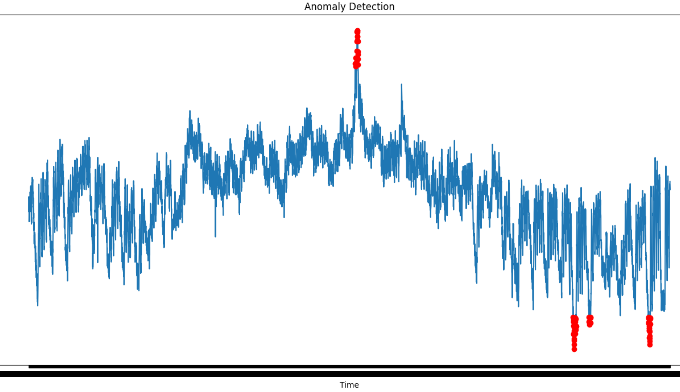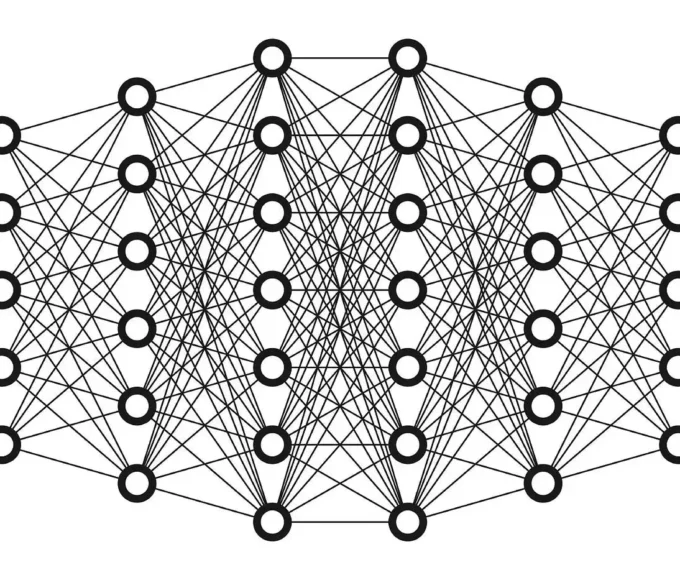The journey of genomics over the past few decades has been nothing short of remarkable. Thanks to ground-breaking achievements like the Human Genome Project in 2003, we now possess a comprehensive map of human DNA, offering a glimpse into the intricacies of our genetic code. As technology has advanced, so has our ability to unlock the secrets hidden within our genes, and one tool that has been instrumental in this pursuit is machine learning, a branch of artificial intelligence. Machine learning has opened up new frontiers in genomics, empowering researchers to analyse massive datasets and gain profound insights into our biology. Its potential to accelerate discoveries and revolutionize personalized medicine has the scientific community buzzing with excitement.
The Genomic Challenge: Decoding Complexity with Machine Learning
At the heart of the matter lies the human genome, a vast and complex blueprint containing approximately three billion base pairs of DNA. Unraveling the meaning of this intricate code has been an immense challenge. In the past, geneticists relied on painstaking experimental techniques to study specific genes or genetic variations. However, these methods were limited in their capacity to analyze the entire genome comprehensively and interpret the sheer volume of data generated.
Empowering Discovery: Machine Learning’s Role in Genomic Analysis
Enter machine learning, a game-changer in the world of genomics. Machine learning algorithms have transformed how we approach genomics by automating data analysis, pattern recognition, and prediction. The algorithms allow computers to learn from the data without explicit programming, enabling them to identify patterns and relationships that might escape human observation.
Variant Calling and Disease Insight: Unmasking Genetic Variation
One of the most significant applications of machine learning in genomics is in variant calling. Variant calling involves detecting genetic variations in an individual’s DNA compared to a reference genome. By processing vast genomic datasets, machine learning algorithms can accurately pinpoint genetic variations linked to diseases or other traits, enhancing our understanding of genetic roots for various disorders and guiding the development of targeted therapies.
Unlocking Comprehensive Understanding: Integrating Genomic Data with Machine Learning
Moreover, machine learning facilitates the integration of diverse genomic data types, such as gene expression data, epigenetic modifications, and protein-protein interactions. By combining these different sources of genomic information, researchers can attain a more comprehensive understanding of gene regulation, cellular processes, and disease mechanisms.
Genomic Medicine: Personalized Healthcare through Machine Learning
Genomic medicine, with its focus on utilizing an individual’s DNA information for personalized healthcare, holds great promise. Machine learning is a crucial player in this domain, analyzing genomic data to identify potential disease risks, predict treatment responses, and suggest tailored therapies.
Targeted Therapies: Machine Learning’s Impact on Cancer Research
In cancer research, machine learning is becoming increasingly invaluable. Researchers can use it to analyze tumor genomes, classify cancer subtypes, and predict patient outcomes. By understanding the genetic drivers of specific cancers, scientists can develop targeted therapies and optimize treatment plans for each patient.
Precision Pharmacology: Customizing Drug Treatments with Machine Learning
Another realm where machine learning shines is pharmacogenomics. This field explores how an individual’s genetic makeup influences their response to drugs. Through machine learning algorithms analyzing genetic data, researchers can predict how a patient will react to a particular medication, allowing for personalized drug prescriptions and minimizing adverse effects.
Challenges and Ethical Considerations: Balancing Potential with Responsibility
Despite these exciting prospects, machine learning in genomics does come with challenges and ethical considerations. One primary concern is the potential for biased results due to the data used to train the algorithms. If the training data lacks diversity or contains biases, the machine learning models may inadvertently perpetuate these biases when making predictions, leading to unequal treatment and healthcare disparities.
Moreover, the interpretation of machine learning predictions and the underlying genomic data requires caution. A false positive or false negative result could have significant consequences for an individual’s health. Thus, it is essential to validate the findings from machine learning models through rigorous experimental and clinical studies.
Data privacy and security are additional ethical concerns. Genomic data is highly sensitive, containing information about an individual’s health risks and ancestry. Ensuring the safeguarding of this information is vital to prevent misuse and protect individual privacy.
Future Horizons: The Path Forward for Genomics and Machine Learning
Looking ahead, the integration of machine learning into genomics is poised to continue reshaping the landscape of genetic research and personalized medicine. As technology advances, machine learning algorithms will likely become even more sophisticated, enabling researchers to tackle increasingly complex genomic questions.
Collaboration between experts in both genomics and machine learning will be essential in harnessing the full potential of these technologies. By combining domain expertise with cutting-edge AI techniques, scientists can unravel the genetic mysteries that lie within our DNA, paving the way for a healthier and more personalized future.
However, to fully realize the benefits of machine learning in genomics, it is crucial to remain vigilant about the ethical implications and ensure that these technologies are used responsibly and equitably.
















Cant wait to see what the future holds!